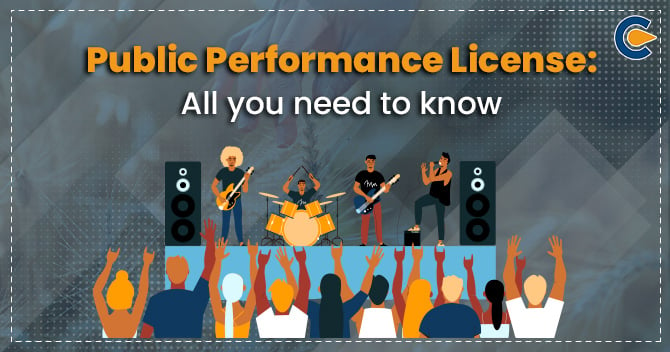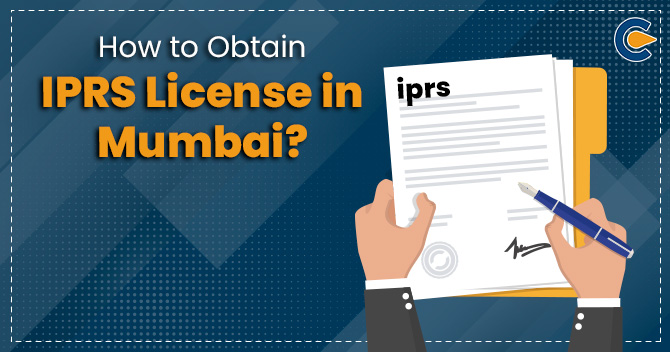A Public Performance License is mandatory for playing pre-recorded music in public places as per the Copyright Act 1957. Live performances and musical shows also fall under the purview of this license. Presently, this license is granted by the government-backed institution Phonographic Performance Limited (PPL).
Who needs a Public Performance License?
Followings are liable to obtain a Public Performance License from PPL
- Bars, cafes, hotels, restaurants, eating house
- Shopping malls
- Educational institutes, college campuses,
- Establishment organizing concerts, festivals, fetes, etc
The PPL license serves as legal approval for playing pre-recorded music on the radio, TV, and public avenues. The events like stage show, musical concerts, dance competitions, brand promotion campaigns, etc., also fall under the ambit of this license. Playing the pre-recorded soundtrack in public places without the PPL license is a legal offence.
An Overview on Phonographic Performance Limited
The purpose of PPL, i.e. Phonographic Performance Limited, is to grant a license to the copyright-protected soundtrack for radio broadcasts and the general public. This license is also required for streaming recorded soundtracks in places like clubs, restaurants, eating houses, radio etc. You will require this license even if you wish to play a small portion of pre-recorded soundtrack publically.
While a PPL license is needed only for public places/events where the recorded soundtrack is streamed, the license granted by the Indian Performing Right Society (IPRS) covers copyright registration for all literary and musical works.
What is a role of Indian Performing Right Society?
The Indian Performing Right Society refers to a representative body of artists that includes lyricists, music owners, composers, and publishers of music. The IPRS secures a royalty on behalf of its registered members (composers, publishers, authors) from the music users and distributes the same amongst the members after reducing the administrative expenses.
GOI established the IPRS on the 23rd of August 1969. It is a non-profit institution which holds a status of a Company limited by guarantee under the Companies Act, 2013.
The IPRS also holds a legal status under Section 33 of the Copyright Act, 1957. This authorizes them to grant the license for the lawful usage of music and literary work
The IPRS registration under the Copyright Act, 1957[1] is mandatory to represent lawful ownership of copyright. IPRS issues the license in accordance with the section 30 of the Copyright Act, as it is the copyrights’ owner via the assignment deed drawn with its members, who are the rightful owners and have assigned the rights to the Society
The license secured under IPRS attracts different tariffs based on the premises and the utilization of the musical work. The tariff-based on-premises is levied depending on the areas of the premises like malls, pubs, restaurants, and cafes. These tariffs are formulated on the specified criteria.
General Norms around the License under IPRS
- All users must submit the applicable license fees as per the tariff. It applies to recorded and live music.
- The yearly license fees are submitted in advance within the standard duration in the tariff, i.e. one month or as per the duration mentioned in the agreement.
- There shall be an 18 per cent penalty and the same threshold of interest if the yearly license fee is not paid in the standard timeline.
- The tariffs will be escalated by 10 per cent on each tariff’s anniversary
- All the royalties are not inclusive of all applicable taxes and GST. Taxes are charged in advance for a duration of 12 months and should be paid at the start of the period.
- All issued licenses shall be executed on or behalf of the IPRS and shall be exposed to the norms cited in the agreement, and shall be considered accepted by the licence holder.
- In the case of Non- Compliant licenses that seek to regularise preceding violations of Society’s rights, including the breach of agreements, the penalty shall be 30 per cent above the prevailing tariff and is imposed at the Society’s discretion. Whereas complaint licenses shall be charged @ 5 per cent at the Society’s discretion.
- The area of licensing is non-dependent on the audibility of the soundtrack or music being played, which implies that if the music is being played at one end of the premises and is audible to other sections, then the overall area shall be taken into account for fee calculation.
- Light and heavy vehicles shall have identical meanings as per the RTO’s guidelines. Carpet Area/floor area/square feet of the premises implies wall to wall area.
- For open concerts or shows, the ground plan must be shared to avail 40 per cent of the scheme, and the permit application should be made eight days before the performance date.
- Two passes to the event must be shared for the vetting while seeking the license.
- The license granted by the IPRS is applicable to the ‘Performing Rights’ of the Musical Works and/or the literary works linked with it. The word ‘Performing rights’ implies and consolidates the right of performing, broadcasting and transmission to subscribers to the distribution in the regime of musical and/or associated literary works.
- The norms include the utilization of the music/soundtrack and the allied literary work in any form and via any method.
Conclusion
The Public Performance License is a mandatory requirement for playing the pre-recorded soundtrack in a public place. Any contravention to this requirement shall incur severe penalties for the defaulter.
Read our Article:Difference between PPL and IPRS License












